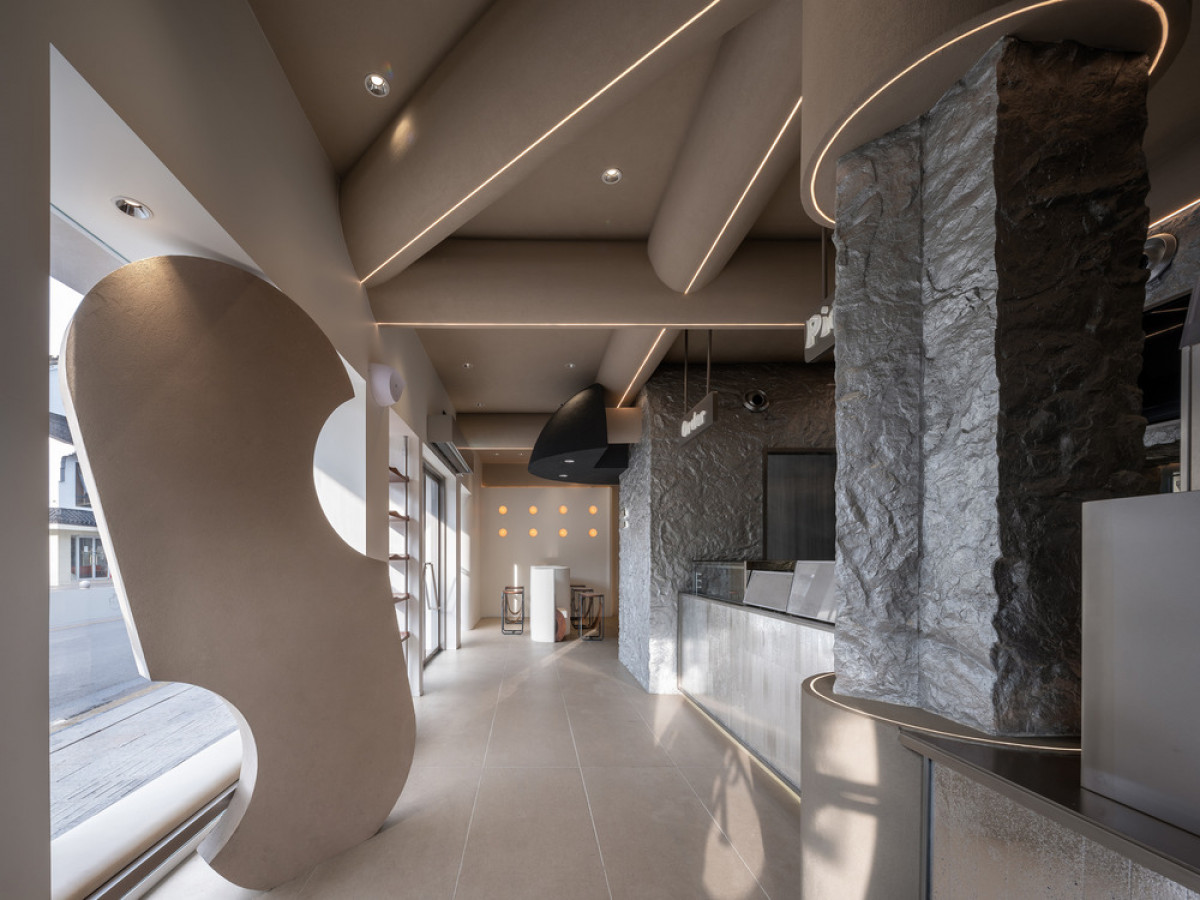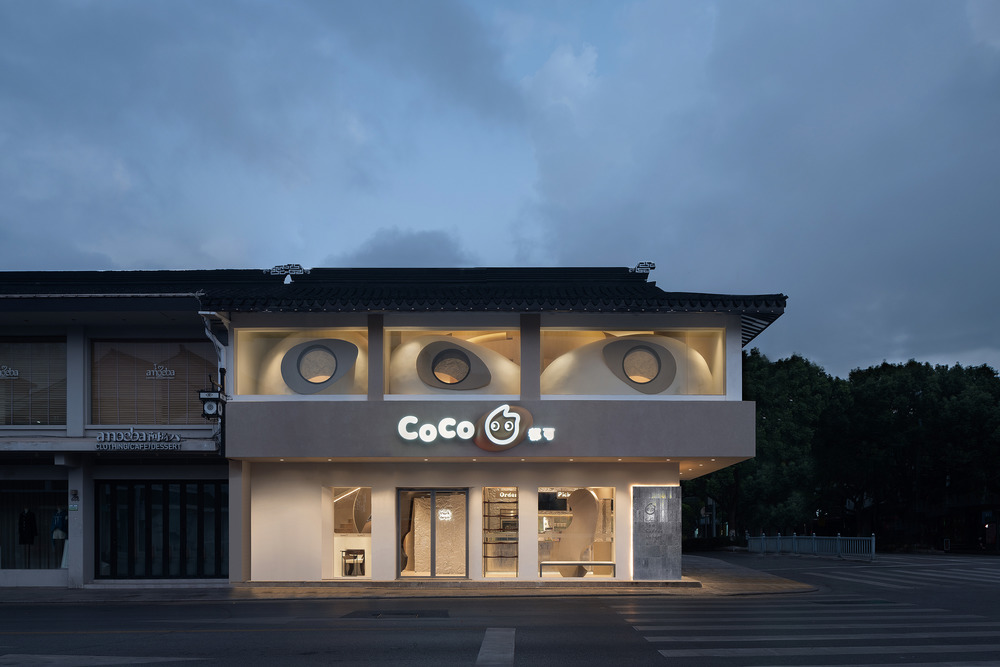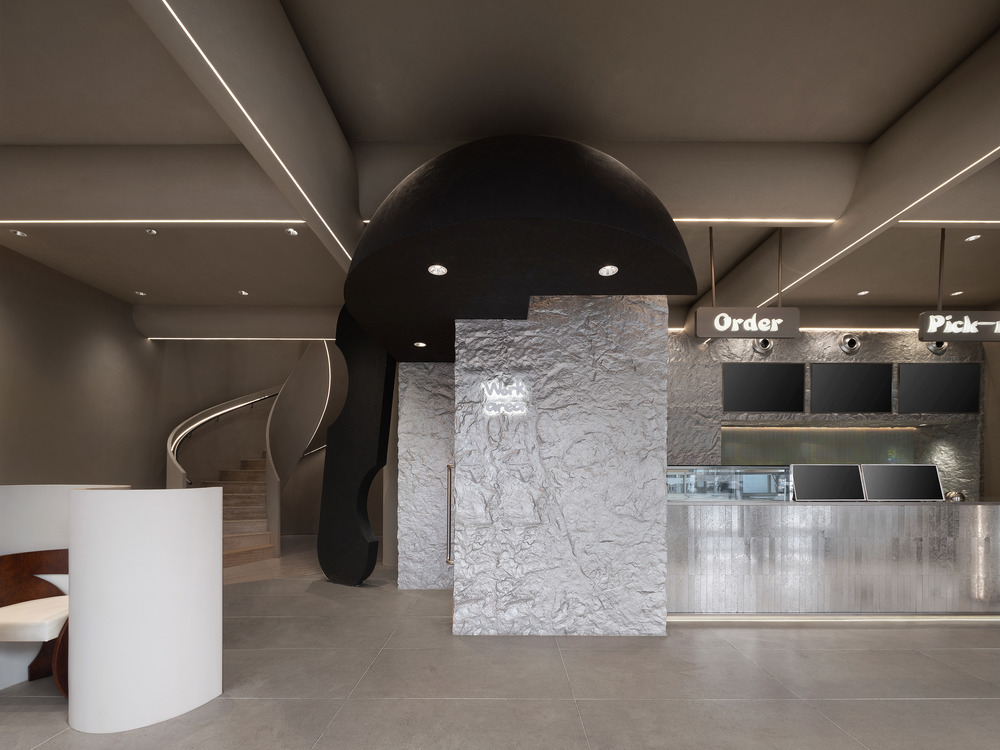11 Aug 2022

Cities with skyscrapers do not lack steel frames, cement, or horizontal and vertical grids. However, at the root of the matter, the instinct of our ancestors was to build nests to seek shelter from wind and rain. Therefore, natural purity can touch people’s hearts more effectively than the refinement of artificial polishing.
CoCo's new store is located on Suzhou Shiquan Street, a boulevard engraved with ancient history. It still retains its traditional geographical pattern and its characteristics as a water town with extremely rich cultural deposits. In this project, the designer integrates the field form into the future living space both to reflect the historical ancient street and to promote the symbiosis and co-prosperity of modern aesthetics and the overall order. Simultaneously, the design seeks to achieve resonance in the collision of the spiritual fields.
Also Read | Arabic Resin art decor launches by Artist Madhavi Adalja
As a whole, the return to original thinking while exploring future lifestyles allows the designer to seek and discover the origin of life, and to connect the top surface, elevation, and ground through a curved structure. The rendering of art continuously penetrates into the entire building, not only in the appearance of form but also derived from detailed connotation. Building a healing and immersive experience, while analyzing the relationship between the environment and future architecture, also leads the brand in a creative and sustainable way.
Also Read | 4 ways to style your interior spaces with copper

As a renovation project, the designer draws upon history as its soul, striving to maintain the details and charm of the original building wherever possible, and using modern art techniques to maintain, awaken, and revive the context, etiquette, and music inherited from the city's history of more than one hundred years. This is not only an exploration of ancient civilization but also prospects for future life.
The design of the space is a grand and beautiful narrative. Upon entering the space, the interior is divided by irregular blocks. Fluidity and a sense of the order of lines enrich the spatial hierarchy, providing a strong and beautiful visual rhythm.
Also Read | Chicago Architecture Biennial Announces Contributors for Fourth Edition: The Available City
The food court area and seating area echo each other. While maintaining a harmonious integration of the two functional areas, the choice and layout of materials, colours, and moving lines contribute clear and independent attributes to each.
The wall in the food court is simple and unadorned. The intervention of light and shadow breaks the monotonous tone. Under indirect light shading, the texture appears delicate and exquisite, with reflections of stainless steel that infuse visitors with a sense of rediscovering original simplicity.
There are no high partitions in the seating area. The simple outline of the wavy wall body creates a relaxing atmosphere, with gentle winding curves providing customers with a chance to enjoy some quiet time. The matrix of the modelling lamps, based on cell particles, is distributed in an orderly fashion on the wall, creating a very simple aesthetic between virtuality and reality. Warm orange lights, similar to the brand colour, pave a warm and healing foundation to create a continuous and dynamic spatial experience for customers.
Also Read | Montreal, Canada : New outdoor furniture section on degaspe.ca
Climbing the spiral staircase, the designer embraces nature in the form of irregular-shaped caves, connecting beams, and curved walls, forming a scene that changes with every step, while contributing metaphors of the future to the space. The embedded window is a prelude to the space. The mottled texture of the internal paint richly portrays the original beauty of the natural carving of a layer of space, constituting spatial tension for customers.
Why do people feel lonely in their spiritual world? On one hand, advanced social products help people to both perceive the world quickly and efficiently. On the other hand, they can also pull people further apart. Based on the concept of returning to the origins of life, the designer builds a rhythmic and soft space with the images of cells and caves, creating a pathway for seeking inner freedom in the balance between ancient civilization and modern aesthetics. The secular definition of success doesn’t represent the criterion for everyone's survival. Human beings should stay true to themselves, pursue the real desires of their hearts, and not cater to or blindly follow anything. That philosophy represents the initial intention of the design, and the confidence placed in the brand's vigorous development.
Also Read | Visioarq wins Architizer 2022 Architecture + Wood

Technical sheet